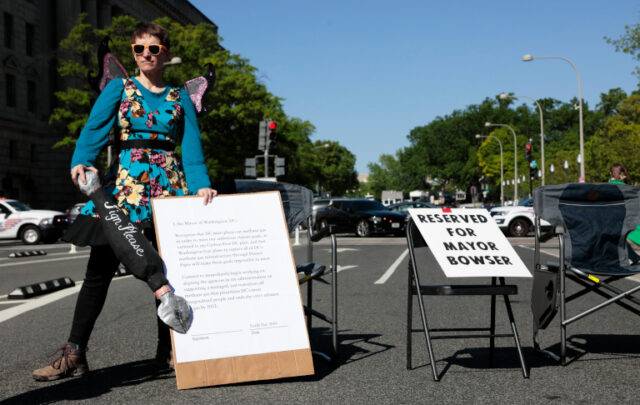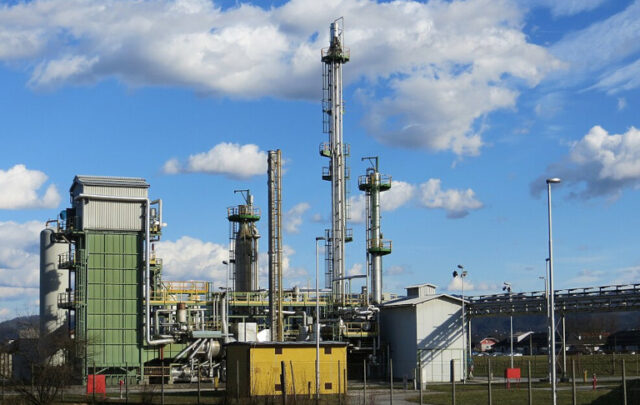Click on the headline (link) for the full text.
Many more articles are available through the Energy Bulletin homepage.
Yglesias on Peak Oil
Matthew Yglesias, Think Progress
In the requests thread, a number of people wanted me to comment on “peak oil.” The main thing I have to say about this is that I don’t totally grasp the alleged significance of reaching a global production peak. It seems to me that to generate the conclusion of big time oil price spikes you only need the assumption that oil production will grow at a persistently slower rate than the world economy.
That seems to me to basically describe our current situation. I think there’s insufficient attention paid to the possibility that if the US/EU/Japan were to return to anything resembling full employment the response would be a giant oil price spike leading to a new recessionary contraction in highly oil dependent economies (i.e., the USA).
You’ve always got to distinguish, though, between shorter-term and longer-term impacts. The technology exists right now to build automobiles that are radically more fuel efficient than the average car on the road today in the USA. Oftentimes this technology is known as “buy a lighter vehicle” to say nothing of hybrids, etc. Cars are expensive, so in the short-term a price spike just leads to hardship and recession. But in the medium-term persistent high prices will lead to more efficient vehicles and in the longer-term persistent high prices will lead to even more R&D on electric cars. So in the long-run, you could say I’m an optimist about resource scarcity. What I’m a pessimistic about is air travel, which seems much more doomed than people generally realize.
What I’m also a pessimist about is climate change. The “easiest”/laziest policy response to persistently high oil prices is to freeze in place all our current policies that explicitly or implicitly subsidize sprawl, car ownership, and car use and then slather a bunch of subsidies for electrification of the vehicle fleet on top of that, with the electricity provided by dirty coal-fired plants. Note that if your electrification subsidies spur sufficient increases in the demand for electricity, it’ll be possible to pair generous subsidies for renewable electricity with increased demand for coal, thus “solving” the political economy problem without really solving anything.
As you know, my preferred approach would be to instead attack this problem at the root—land use regulations that lead everything to be inefficiently far apart and that prevent the built environment to adapting to changes in objective economic conditions.
About: Matthew Yglesias is a Fellow at the Center for American Progress Action Fund. He holds a BA in Philosophy from Harvard University. His first book, Heads in the Sand, was published in May 2008 by Wiley. Matt has previously worked as an Associate Editor at The Atlantic, a Staff Writer at The American Prospect, and an Associate Editor at Talking Points Memo. His writing has appeared in The New York Times, the Guardian, Slate, The Washington Monthly, and other publications. Matthew has appeared on Fox News and MSNBC, and been a guest on many radio shows.
(3 January 2011)
Suggested by EB contributor Rick Lakin who writes :
Although his stated view is that he does not buy into the Theory of Peak Oil, his article presents the legitimate consequences of Peak Oil and also some pragmatic fixes.
-BA
Rising prices rekindle peak oil debate (Jaccard vs Heinberg)
Matthew Burrows, Georgia Straight
A noted environmental economist at Simon Fraser University believes the issue of peaking oil production will become irrelevant if humanity takes steps to address climate change.
Mark Jaccard made the comment on January 4 as oil prices hovered at about US$90 per barrel—up from around US$75 per barrel approximately six months ago.
“We have to address the climate issue, in my opinion,” Jaccard told the Georgia Straight in a phone interview. “We’ve got to go after that, and that conveniently takes care of your peak-oil concern.”
Jaccard’s view on the threat posed by peak oil sharply contradicts that of Richard Heinberg, a senior fellow-in-residence at the California-based Post Carbon Institute who has written extensively on the subject. Heinberg noted in his 2006 book The Oil Depletion Protocol: A Plan to Avert Oil Wars, Terrorism and Economic Collapse that the use of fossil fuels is so widespread in everyday life that conflict and societal collapse may result if the transition away from these finite resources is not properly managed.
From his home in Santa Rosa, Heinberg reaffirmed the common belief that the cheapest sources of oil have already been tapped. He told the Straight that the oil industry, if it is to fund new extraction projects, requires the global price to be at about US$70 per barrel. The price that will send the economy back into recession, because of overall increases in the cost of goods and services, is likely to be between US$90 and US$100 per barrel, he said.
“So there is a very, very small range where we can still have a functioning economy, but not really a growing economy,” he explained
(8 January 2011)
A shoppers guide to energy choices
Rolf E. Westgard, Minneapolis Star Tribune
The new emphasis on renewable energy presents an array of fuel choices for electricity. The experience can be compared to retail shopping:
Coal shops are open most of the time and on schedule. They offer low prices at discount-
store levels. But their products and waste are known to create health hazards for people and the environment.
Natural gas shops also have regular and frequent hours. In addition, they maintain on-site staffing during closing times and offer emergency products when other sources fail. Health hazards are minimal, and prices are medium.
Nuclear shops are open all the time except for a one-month period every two years for restocking and maintenance. Medium-priced nuclear products are generally free of health hazards. But these stores do create hazardous waste that is a challenge for disposal services.
Wind stores are open just a fourth of the time on irregular schedules. Open hours are often at night and in winter, when shopping demands are low. Products are healthy, and prices range from low to high depending on location and weather.
Solar shops operate on irregular daytime hours that also vary with location and weather. Prices range from medium to high for products that are not hazardous.
Hydroelectric shops are open most of time with healthy products, but there are relatively few places where they can function. Their large size and operations are a problem for marine life and water supplies. Their low costs are competitive with coal shops.
Legislators will be passing bills that mandate some choices and affect others. What’s your choice?
(5 January 2011)





